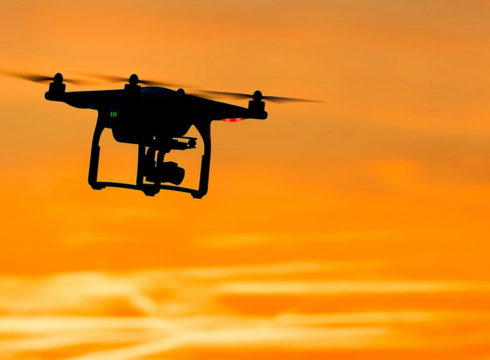SUMMARY
DGCA has invited EOI for experimental beyond visual line of sight operations
Inc42 DataLabs estimates a market size for drones to go up to $161 Mn by FY 2020
Based on the proof of concept, DGCA will form the regulations
Inc42 Daily Brief
Stay Ahead With Daily News & Analysis on India’s Tech & Startup Economy
In order to ultimately form a regulatory regime and allow the use of drones beyond the line of sight, the Directorate General of Civil Aviation (DGCA) has invited expressions of interest (EOI) from consortia of experts to conduct experiments in the use of drones.
With the current regulations prohibiting the use of drones beyond visual line of sight (BVLOS) companies operating in logistics, ecommerce and hyperlocal space find it impossible to use the technology. Inc42 DataLabs estimate the market opportunity in the sector worth $161 Mn by FY 2020.
The objective of the proposed operations will be to conduct experimental BVLOS operations of Remotely Piloted Aircraft Systems (RPAS) in controlled condition within identified and segregated low altitude Indian territorial airspace for a period of at least 2 months, collect evidence, prepare safety case and submit Proof of Concept (POC) to DGCA. The experiments, as per the DGCA, will pave the way for requirements to enable BVLOS operations in the future.
According to the note issued Joint DGCA G Rajasekar, “The opportunities for UAS operations, particularly at low altitudes, are spread across a plethora of sectors including inspections and monitoring, surveying and mapping, filming and photography, precision agriculture, delivery, search and rescue, disaster relief, public safety, etc.”
Each consortia will include RPAS operator, UAS Traffic management (UTM) operator supplementary service providers and agencies for data collection and analysis. The EOI document mandates that each consortia should be led by a project coordinator who must be an Indian citizen and must have two years of experience in RPAS operations as a drone pilot, manufacturer or operator. Post experimental operations, the consortia will submit POC for approval of BVLOS operations to DGCA, along with the safety case report. The minimum requirement for the approval of proof of concept set by DGCA is 100 hours of flight time of experimental flight.
Despite a market for futuristic technologies such as drone, the Indian deep-tech sub-sector has witnessed a laggard growth primarily due to the regulatory regime restricting the commercial application of the technology. The investment in this sector also is sluggish because of the regulations. Only now it seems that the government is waking up to the opportunities such sector presents if properly harnessed.
Note: We at Inc42 take our ethics very seriously. More information about it can be found here.


